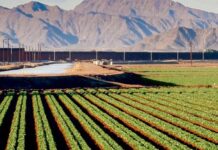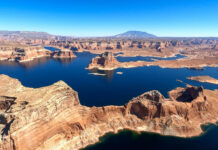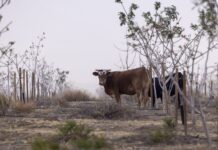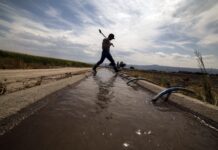Stream management planning watered down by agriculture
Flow targets for the environment and recreation are lacking, according to a recent report.
Unsafe yield
Severe drought, dead wells and political division push Arizona steadily closer to water supply peril.
Two new Colorado River deals give parched Lake Powell temporary relief
Lake Powell will receive 1 million acre-feet of water from the Colorado River as a short-term solution to drought, boosting lake levels and protecting hydropower production.
Lawmakers suspend attempt at legislative fix for water speculation
Colorado lawmakers have suspended an attempt to prohibit outside investors from profiting off the state’s water.
Photos: Agriculture in Pinal County, Arizona
This page features photos of agriculture in Pinal County, Arizona.
Located in the central part of southern Arizona, Pinal County is one of the most agriculturally productive counties in the...
The Southwest monsoon season is changing, forcing ranchers and Indigenous farmers to adapt
Changing storms in the Southwest are altering timeless food traditions as researchers grapple with how to study the monsoon’s erratic nature.
Colorado lawmakers propose millions in funding to slash groundwater use; curb water profiteering
New legislation could help water-strapped regions of the state meet their obligations to deliver water to Kansas, New Mexico and Texas.
Special Report: As Lake Powell hits record lows, is filling a new drought pool...
Upper Basin states that created their own drought contingency plan still haven’t agreed on the biggest, most controversial element of the plan.
Investment water speculation bill clears committee
Despite opposition from agriculture interests, legislators moved forward a bill aimed at outlawing water investment speculation.
Nine Colorado roundtables submit $20.3B in water project lists, ask for public’s input
Colorado communities have identified projects to help ensure there's enough water for the state's people, farms and wildlife.












